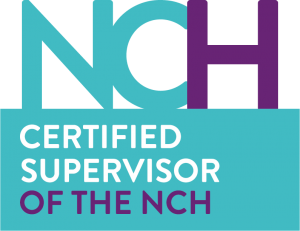Where do you work as a hypnotherapist?
I’m mainly based on the Avenue in Southampton which is next to Cavendish Grove and I work about once a month on Harley Street, which is ironically, next to Cavendish Square! Both practices are ideally located in both cities.
When did you first come across hypnosis?
I think I first came across hypnosis when I wanted to stop smoking, about 20 years ago, I’m not sure I really gave it any attention to hypnosis before then. I remember at the time I was smoking, easily 25 a day, and was really struggling to quit and I went to see an ex-Chief Constable turned hypnotherapist. For me, it was really important that I could trust him and with his past background I felt I really could.
Why did you become a hypnotherapist?
It’s a good question because I know why I became a hypnotherapist but sometimes I do wonder about this. What do I mean by that, well, I came from a training management and coaching background and I was using visualisation to improve people’s professional performances and I believed that hypnotherapy would enhance my coaching. Actually, once I had qualified as hypnotherapist I realised that it was the coaching that enhanced my therapy and so I really never looked back. Although I still work as a coach I realise that I can facilitate bigger changes in people’s lives through hypnotherapy which is so much more important to me.
What’s been your single biggest challenge to date?
(laughs) I suspect you want an answer about the hypnotherapy, yet the single biggest challenge for me, like others in business is marketing. Now, I consider my hypnotherapy to be absolutely first rate and right up there with the very best that money can buy on Harley Street and yet it is not enough to be good at what you do, I’m afraid the biggest challenge is all about marketing and letting clients know you’re here and that you can really help them!
What motivates you?
That’s easy. What gets me out of bed in a morning is working with different people! When you follow up with a client and they tell you about how things have changed for them and tell you about how different, better, improved their lives are you get an intense feeling of satisfaction. My wife often tells me there aren’t many industries where someone punches the air when they get a good result!! I suppose that’s very true (laughs and smiles)
In your opinion, how does Hypnosis work?
Hypnosis is an altered state of awareness through a directed focus. It seems to me that a person enters the REM state and as such, the mind starts to learn, I mean really learn, and by not allowing the consciousness to alter that learning, by putting up barriers or seeking evidence or clarification – then, success because in the mind all things are possible (smiles).
What’s your advice for someone seeking hypnotherapy?
Contact me! In all seriousness, find somebody experienced that you trust. Somebody who is backed by decent qualifications and who is a member of a professional body, for example the NCH and CNHC. When you’ve found somebody you’d like to work with, just ring them and ask for a consultation along with what their initial thoughts are and how they plan to help you. If the therapist states 10 sessions at £££s… That rings warning bells for me because we really don’t know how many sessions may be needed.
How many sessions do people need?
The vast majority of people will experience change after the first session. Some people may need another session, others may need perhaps two or three or more… but it is hard to tell because everyone’s individual and cases are complex. If you don’t see any change after two sessions then I would say it’s unlikely to be the treatment for you with that particular therapist. That said, even if you’ve had the changes you wanted, reinforcement work is really important because it can prevent any re-occurrences of the original issue. Even 'topping up' over time can help.
What is your advice for someone wanting to join the industry as a hypnotherapist?
A lot people train every year as hypnotherapists and don’t enter the industry and others enter the industry for only a year because they find out it’s quite a crowded place to work in with lots of hypnotherapists and therapies available. So my advice is think very carefully before you give up a job to enter the industry. However, if you are convinced, find a good training school, definitely accredited by one of the professional bodies such as the NCH and then practice, practice, and practice some more and in fact it's only by getting experience that you will become better as a hypnotherapist – don’t forget the importance of a mentor and supervisor. Oh and, be prepared to work unsocial hours around the clients.
What hobbies and interests do you have?
I think there’s a lot of hobbies that I would like to have and a lot of interests that I’d like to put some time to… but, as a hypnotherapist and coach I do spend an awful lot of time reading and researching, especially considering that I am a doctoral student of coaching at Oxford Brookes University at the moment which seems to take most of my time. If I had the time, I suppose I’d watch more Formula One motor racing and play the occasional round of golf. Although time is all is against me, I do manage to go swimming quite regularly.
Do you practice self-hypnosis?
Every day if I can. It really is a wonderful state where you can problem solve, relax and recharge.
What is your favourite book?
Hmmm, I think it has to be the seven habits of highly effective people by Stephen Covey. I was trying to think of some books that I’ve read recently, Sebastien Faulkes is a great author but I think that the seven habits really do give a step-by-step pathway for acting honestly and with fairness and creates a genuine and wonderful framework for a happier life.
What does the future hold for you and for hypnotherapy?
Well, I can’t ever see me leaving hypnotherapy as I do love my work too much and I do absolutely feel that it’s more of a higher calling than just a job. I think that’s why I’m a full-time professional hypnotherapist because it’s so important to be immersed in the work. Many therapists in the industry are just part-time and I don’t think that’s how it should be. As for hypnotherapy? Well, I can only see people dealing with more stress, having more anxiety and problems in their life. Today’s way of living and working seems to be, to do more, with fewer people, for less money and with tighter deadlines, so I think I will be needed for a while longer. I only hope that people begin to see how amazing and effective a therapy it can be!
"This interview was very enjoyable and I would like to thank Miss JH for asking those questions over coffee."






